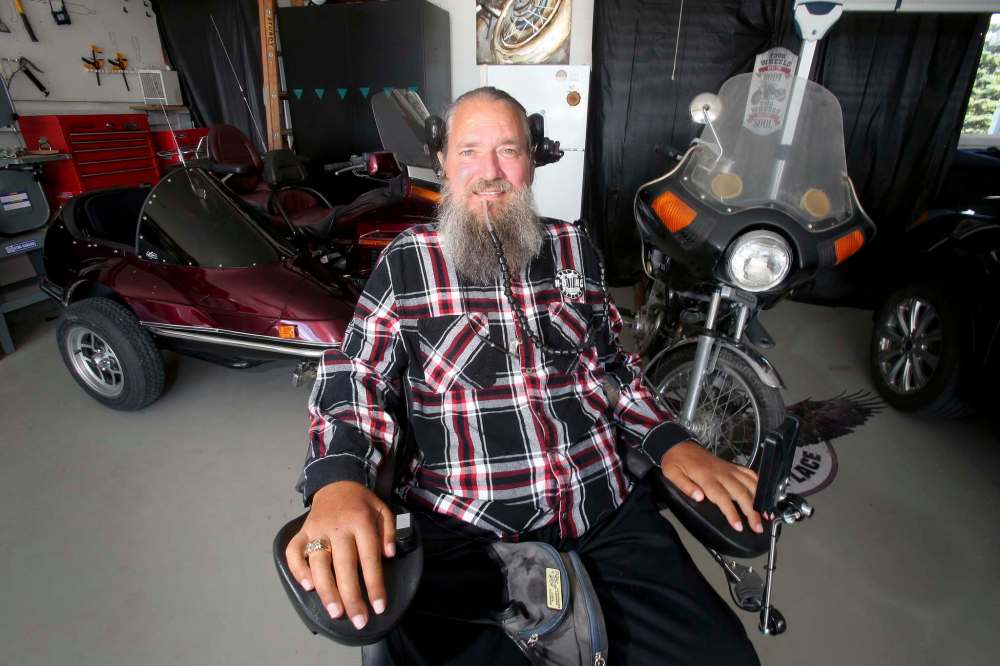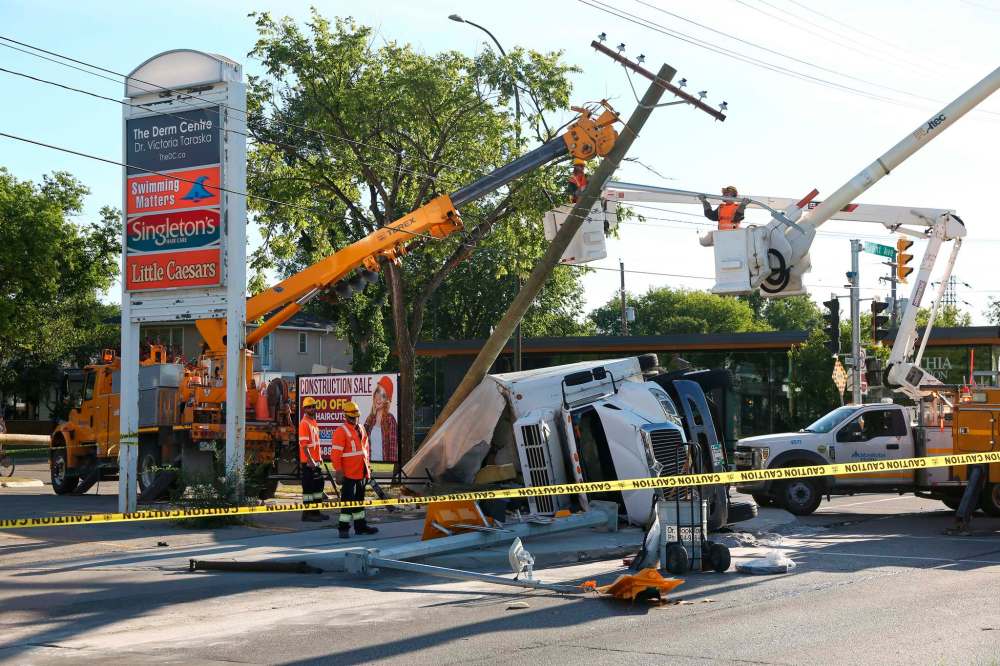Fewer collisions, but serious injuries up in first half of 2020, MPI reports
Advertisement
Read this article for free:
or
Already have an account? Log in here »
To continue reading, please subscribe:
Monthly Digital Subscription
$0 for the first 4 weeks*
- Enjoy unlimited reading on winnipegfreepress.com
- Read the E-Edition, our digital replica newspaper
- Access News Break, our award-winning app
- Play interactive puzzles
*No charge for 4 weeks then price increases to the regular rate of $19.00 plus GST every four weeks. Offer available to new and qualified returning subscribers only. Cancel any time.
Monthly Digital Subscription
$4.75/week*
- Enjoy unlimited reading on winnipegfreepress.com
- Read the E-Edition, our digital replica newspaper
- Access News Break, our award-winning app
- Play interactive puzzles
*Billed as $19 plus GST every four weeks. Cancel any time.
To continue reading, please subscribe:
Add Free Press access to your Brandon Sun subscription for only an additional
$1 for the first 4 weeks*
*Your next subscription payment will increase by $1.00 and you will be charged $16.99 plus GST for four weeks. After four weeks, your payment will increase to $23.99 plus GST every four weeks.
Read unlimited articles for free today:
or
Already have an account? Log in here »
Hey there, time traveller!
This article was published 28/08/2020 (1940 days ago), so information in it may no longer be current.
Neil Klippenstein knows first-hand the catastrophic changes that can happen to someone involved in a serious vehicle collision.
Klippenstein, now 59, was a self-employed contractor and a decades-long motorcycle rider when he was left paralyzed from the neck down when his bike was rear-ended on Lagimodiere Boulevard on Aug. 3, 2011.
He now uses a motorized wheelchair to get around. He can’t drive a motorcycle, but he can now sit in a sidecar and be driven around. Going on vacation means bringing a portable lift with him so his wife can get him into a hotel bed. He can go to construction sites, but only to watch others work.

That’s why Klippenstein is concerned after hearing that Manitoba Public Insurance has recorded double the number of serious and catastrophic injury claims during the first seven months of the year, compared to not only the same time period last year, but also 2018.
“That was alarming,” he said Friday.
“And a lot of them are motorcycle-related, as well. We need drivers to be vigilant and take our time on the roads and look for motorcycles. They’re often in your blind spot.”
MPI has received 18 serious/catastrophic injury claims, including victims left quadriplegic, paraplegic or with brain injuries, compared with nine in 2018 and eight in 2019.
Nine of this year’s claims were in July alone and Satvir Jatana, MPI’s vice-president of employee and community engagement, said the higher numbers come after a year that set a new record for worst year in a decade with a total of 23 serious/catastrophic injury claims. Normally there are about 20 of these types of claims every year.
“While we’ve experienced a decrease of nearly 22,000 collision claims during the period of January to July 2020, compared to the same time frame in 2019, unfortunately, serious injury counts are dramatically higher,” Jatana said in a statement.
“These types of injuries typically result in very long hospitalization and recovery time for those affected. The injuries are devastating, often resulting in total or partial paralysis, amputation, serous brain injury, or life-changing trauma. In some cases the injured person may require care 24 hours a day.”
MPI said the higher numbers also come during a period when the COVID-19 pandemic has reduced traffic volumes — and regular collisions — so much that the province’s vehicle insurer actually cut Manitoba motorists insurance rebates.
But MPI said in a statement that while traffic volumes remain relatively low, “many drivers have dramatically increased their speeds.

“The majority of serious/catastrophic injuries take place on rural roadways where speed limits are typically higher, increasing the severity of the crash.”
In fact, MPI said there has been a 60 per cent increase in the number of speed-related serous driving offences — 50 km/h or more over the speed limit — reported to the Registrar of Motor Vehicles.
Klippenstein, meanwhile, said MPI has been a great help to him since the collision.
“They were very accommodating in fulfilling my wishes to get back in saddle again,” he said.
“They have been just wonderful along my whole journey in making my life every accessible, no matter what my needs are.”
kevin.rollason@freepress.mb.ca

Kevin Rollason is a general assignment reporter at the Free Press. He graduated from Western University with a Masters of Journalism in 1985 and worked at the Winnipeg Sun until 1988, when he joined the Free Press. He has served as the Free Press’s city hall and law courts reporter and has won several awards, including a National Newspaper Award. Read more about Kevin.
Every piece of reporting Kevin produces is reviewed by an editing team before it is posted online or published in print — part of the Free Press‘s tradition, since 1872, of producing reliable independent journalism. Read more about Free Press’s history and mandate, and learn how our newsroom operates.
Our newsroom depends on a growing audience of readers to power our journalism. If you are not a paid reader, please consider becoming a subscriber.
Our newsroom depends on its audience of readers to power our journalism. Thank you for your support.


